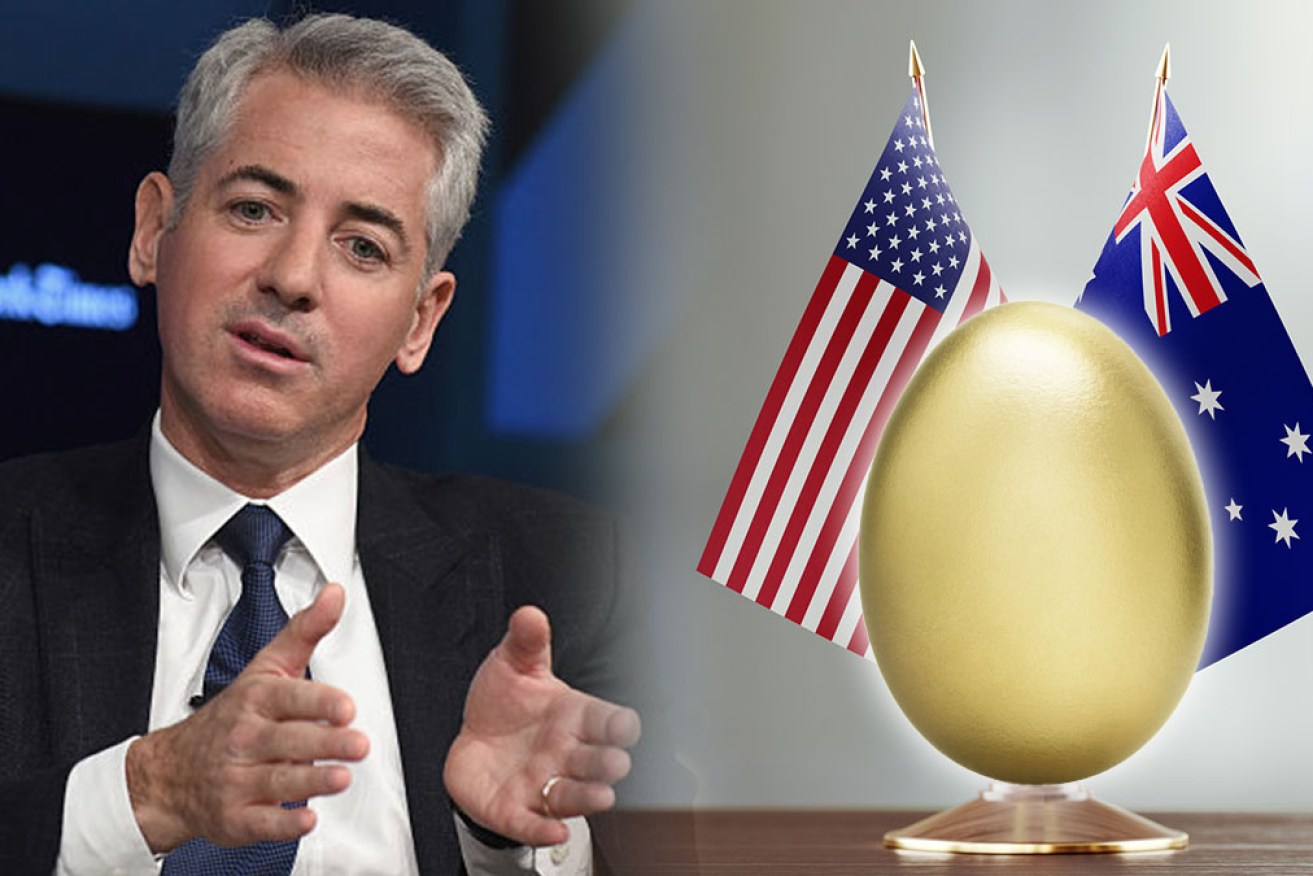US fund manager wants Australian-style super as solution to America’s widening inequality


US investor Bill Ackman wants America to adopt Australia's super system. Photo: The New Daily
Major American investment manager Bill Ackman is calling for the adoption of an Australian-style super system in the US to tackle inequality and protect the capitalist system.
Writing to investors in his Pershing Square group – which has $US6.75 billion ($A9.28 billion) in the markets – Mr Ackman said that “one of the principal problems with capitalism … is that wage growth has not kept pace with long-term wealth creation.”
If that situation continues then “more and more Americans will seek changes – potentially radical ones – to the current system or seek an alternative system,” Mr Ackman said.
A push to “socialism or other alternatives” is likely to be driven by “Americans who have no ownership in the success of capitalism.”
One solution put forward by Mr Ackman would be mandating employers to set aside funds for workers “similar to the approach used by the highly successful and popular Australian superannuation system, which has created savings of scale for growing generations of its citizens.”
The Australian super systems has set aside, Mr Ackman observed, $2.7 trillion in retirement savings since it was established in 1991.
“[That’s] nearly twice the country’s GDP,” he said.
“Remarkably, Australia has created the fourth-largest pension system in the world, in the 53rd most populous nation.”
Wages in the United States have effectively been on the decline for much of the last 40 years with the average wage after inflation peaking in 1973 at $US23.24 ($A31.99) an hour.
Wages did not reach that level again until March 2019.
“There has been tremendous inequality in the US,” said Professor Simon Jackman, CEO of the United States Study Centre at the University of Sydney.
“Average wages in areas like computer software and financial services growing dramatically while, at the same time, there has been an oversupply of unskilled workers which has held wages down.”
Aussies doing ok
At the same time real wages in Australia have been growing, according to Mark Wooden, economics professor at the University of Melbourne.
“If you look at real wage growth levels [wage growth above the inflation rate] they grew at 0.6 per cent in the period between 2001 and 2008,” Professor Wooden said.
“[They grew at] 0.8 per cent between 2008 and 2013 and then only 0.2 per cent between 2013 and the present,” Professor Wooden said.
A major difference between the two countries is the award system.
“While there’s a minimum wage in the US and Australia there are actually hundreds of minimum wages in Australia set by awards,” Professor Wooden said.
“So we have about 21 per cent of people on award minimums that are above the actual legislated minimum, which is the highest in the world.”
In the US the growth in low skill employee numbers has held down wage growth and the minimum wage is extremely low at $US7.25 ($A9.97) per hour compared to $19.84 in Australia.
Super boosts wages
Superannuation has further improved Australian wages as the current 9.5 per cent of wages paid in by employers is not counted in the measurement of wages in the above chart.
“The super system is a form of social engineering which grew out of the relationships between Labor governments and the union movement,” Professor Jackman said.
By adopting an Australian-type superannuation system, US workers would improve their retirement prospects while also effectively getting a wage rise through employer funded contributions.
“Ensuring workers have a stake in the growth in capital markets is a vital ingredient in delivering better retirement incomes and combating inequality,” said Industry Super Australia (ISA) in a statement.
“Isn’t it ironic that while other developed nations look with envy at the difference our super system makes to the lives of ordinary people, some of our own leaders want to tear it to pieces and create the shocking divisions in wealth we observe in those same nations trying to emulate us,” said ISA CEO Bernie Dean.
“Australia is one of very few OECD countries to have reduced its age pension expenditure as a portion of GDP since 2000, with this positive decline set to continue in the years ahead.”
These trends are good news for taxpayers, Mr Dean said, and highlight the value of a universal compulsory super system.
“But we can’t take these things for granted,” he added.
“We need to protect members from adverse system change that would shatter their retirement balances and be disastrous for the economy, such as cancelling the super rate rise and lumping future generations with tax hikes by cracking open preservation rules.”
Hold on a minute
Professor Jim Stanford of the Centre for Future Work said he thought Mr Ackman was concerned more with the future of the capitalist system than social equality.
“Adopting the Australian system would not do anything for wages,” he said.
“America already has a defined benefit pensions system called Social Security which is universal and pays 12.4 per cent, half contributed by workers and half by employers.
“It’s not invested in the stock market, it’s simpler, less-costly, and more secure for workers,” he said.
However with half the contributions coming from workers it contributes less to wages than the Australian system.
The New Daily is owned by Industry Super Holdings








